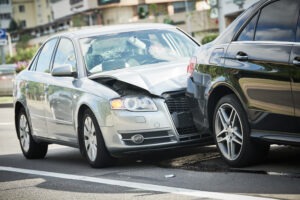
If you were involved in a car accident, it is important that you understand who is liable for your damages.
In a no-fault accident state, individuals must carry a minimum amount of liability coverage, a minimum amount of personal injury protection insurance, and a minimum amount of bodily injury coverage. These insurance requirements are often stricter because individuals in these states must pay for their own damages regardless of who was at fault for the accident.
For many people, this setup seems unfair. If another person causes an accident, why should the innocent driver’s insurance company be required to pay up? When a person files an insurance claim, his or her premium almost always soars.
Fortunately, Oklahoma is not a no-fault state. Rather, it is an at-fault state. To learn more about what this means for you post-accident, contact the Oklahoma car accident lawyers at BDIW Law today.
Oklahoma Is an At-Fault State
In at-fault states such as Oklahoma, the at-fault driver’s insurance company is liable for all damages sustained in an accident. Usually, the driver’s bodily injury liability coverage would cover the other driver’s medical expenses, and the property damage liability would cover the cost of auto repairs. How much in damages the insurance company would be required to pay depends on how much fault the plaintiff holds for the accident.
In addition to abiding by at-fault laws, Oklahoma also abides by a modified comparative negligence standard. What this means is that the amount of damages a victim may recover is reduced by the percentage of fault assigned to them.
For instance, if a driver assumes 25% responsibility for an accident, their settlement will be reduced by 25%. If said driver’s damages amount to $20,000, the amount they would actually receive would be $15,000.
Our Team Is Here To Assist You Every Step Of The Way.
SPEAK TO AN ATTORNEY TODAYThe Pros of Living in an At-Fault State
There are three main benefits to living in an at-fault state:
- At-fault laws ensure liable parties are held accountable for their reckless behavior. In no-fault states, negligent drivers are only accountable for themselves, a fact that often fails to deter drivers from acting in a reckless manner
- Insurance rates are not likely to increase for innocent parties in fault states. In no-fault states, both parties’ insurance rates are likely to increase post-accident.
- Finally, accident victims can sue for damages that exceed minimum insurance requirements in fault states. In no-fault states, drivers can sue, but only if their injuries meet certain criteria.
The Cons of Living in an At-Fault State
Of course, there are some pitfalls to fault laws. Because insurance companies have to pay out claims regardless of fault in no-fault states, they are quick to settle and pay up as there is nothing to prove except that an accident occurred.
In fault states, claimants must prove fault, and it may take months for an insurance company to finally agree to pay. Also, in fault states, an insurance company has the right to deny a claim. If that happens, you may be forced to take your case to court, and moving through the legal process takes time.
Another pitfall of fault laws is that if the other driver is uninsured or underinsured, you may not be able to collect compensation. While you could sue the driver, there is a good chance they will not have enough funds or assets to cover the cost of damages. In no-fault states, you do not have to worry about uninsured or underinsured drivers, as you are only required to cover yourself.
Insurance Companies Use Unethical Strategies
Since the amount the insurance company has to pay is affected by the victim’s level of fault, insurance companies often use unethical strategies to increase the victim’s fault and reduce their required payout. Common tricks include:
- Using your words against you. Even a sympathetic “I wish the accident never happened” type of statement can be twisted into an admission of fault
- Misrepresenting the accident details puts more blame on you. Insurance companies have their own investigators to help with this process.
- Using intimidation to scare you into accepting a settlement lower than you deserve. The adjuster may claim the offer is extremely generous and the most you can expect, and by refusing it, you lose your chance to get any compensation.
Do not fall for these tricks. Better yet, do not even speak to the insurance companies or adjusters. A BDIW Oklahoma car accident lawyer is equipped to handle those conversations for you, and will not allow the insurance company’s tricks to stand.
Proving Fault in an At-Fault State
Oklahoma and other at-fault states require car accident victims to prove the at-fault driver’s negligence in order to collect a settlement. To prove fault, you must
- Prove the other driver owed you a duty of care. Oklahoma driving laws establish every driver owes others sharing the road this duty, meaning vehicle operators must avoid reckless behaviors and take reasonable actions to prevent accidents and promote others’ safety.
- Prove the other driver breached or failed to uphold this duty and that failure caused the accident.
- Show you have sustained measurable damages because of the other driver’s failure to fulfill their duty of care to you.
An experienced car accident attorney in Oklahoma has the resources and experience to conduct an investigation of your accident, compile evidence to prove the at-fault driver’s negligence, assess your losses, and gather documentation showing the financial damages you have experienced from the accident and your injuries.
Contact an Oklahoma Car Accident Lawyer
If you were involved in a car accident in Oklahoma and want better to understand your rights under the state’s fault laws, contact the Oklahoma car accident attorneys at BDIW Law today. Our team can inform you of your rights and advise you on the best course of action for recovery.








